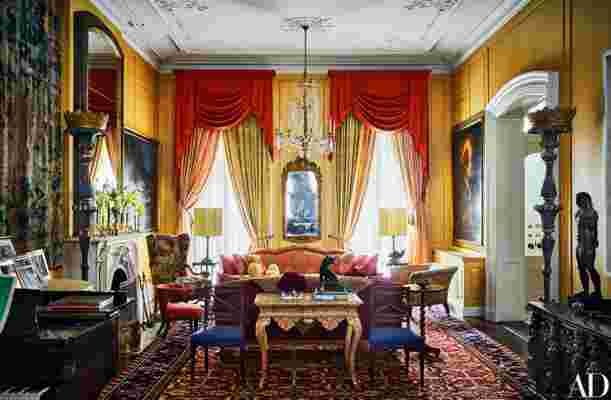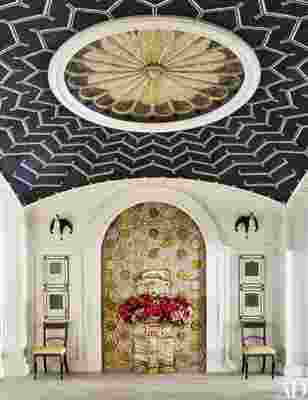Not long after my mother died, her best friend became a real-estate agent. Dorothy had enjoyed a successful career as a psychologist, but losing my mother made her too sad to take on additional depressed patients, she explained; what she had liked best about her work was snooping through the lives of strangers and helping solve their problems, and she figured she could do so equally well in this new career. When I returned to New York in the summer of 1992 from South Africa, where I had been reporting on the end of apartheid, I had a phone message from Dorothy, saying, “I’ve found the house you’re going to live in for the rest of your life. Call me as soon as you can.” I told her I wasn’t even sure I wanted to stay in New York. She said, “When you see this house, you’ll stay.”
The squalor was almost unimaginable. Graffiti covered the walls; leaking pipes projected from the ceilings; the roof had been taken off a room on the top floor, and the dangling roots of suspicious plants grew through the ceiling of what is now my bedroom. The place smelled alarming; I found a dead cat under one of the bathtubs when I took possession. The windows were so dirty that light could barely penetrate around the peace-sign decals that adorned them. Inexplicable Formica cabinets sagged in several unhygienic kitchens. But the scale was noble, and the decades of neglect meant that the lovely original features of the townhouse—fireplaces, carved balustrades, inlaid floors, detailed woodwork—had not been stripped out, as had happened to so many neighboring homes in the 1970s. I bought the property at a probate sale where there was only one other bidder.
I had written about design for some years and knew I wanted Robert Couturier to revitalize the house. I recognized his knack for intersecting volumes and his unerring sense of proportion: His work is steeped in refinement but not enslaved by it. He was sympathetic to my pretensions of grandeur and unfazed by my perfectionism. I can be rigid and uncompromising; Robert has a rare gift for being definitive but conciliatory. He had charmed me the first time I met him, and his effusive kindness and generous sense of humor would be essential for the huge project ahead. I was convinced that his wild imagination, coupled with his fathomless scholarship of architectural history, could turn this desolate wreck into someplace warm and exuberant. Moreover, I had lived in England for many years and wanted a house that didn’t feel altogether of New York, and Robert, with his singular ability to celebrate history without pandering to it, brought in a bit of Europe without being precious or coy.



Robert proposed that we punctuate the long, narrow living room with twin arches to the entrance hall. When we opened up the walls, we found brickwork for nearly identical apertures—proof of the rightness of his instincts. He added tall mirrors over the two fireplaces, and the room began to breathe; then he designed wall moldings to enliven the flat expanses subtly. I had always yearned for a double-height library, since books are my life. He figured out how to make the upper tier of bookcases seem almost to float, using a wrought-iron catwalk as delicate as a spiderweb.
He achieved coherence that encompassed the myriad acquisitions of my wide-ranging travels. He incorporated the tile panel I’d bought in Afghanistan into a bath wall and installed my panel of Chinese silk embroidery on the arched ceiling of the dressing room. Cloth woven in India from peacock feathers was to trim the dining room curtains; passementerie from Madagascar could be deployed in the living room; feather money from the Solomon Islands was framed for one of the baths; Mongolian chatelaines were positioned in the dressing room; and the Burmese begging bowl went onto a mantel. As Dostoyevsky wrote, “Beauty will save the world.” My work with Robert on this and other projects since has both reflected and profoundly influenced my personal aesthetic—and is enmeshed even in my sense of purpose.
For the full story, subscribe now and get the digital edition immediately.

Leave a Reply